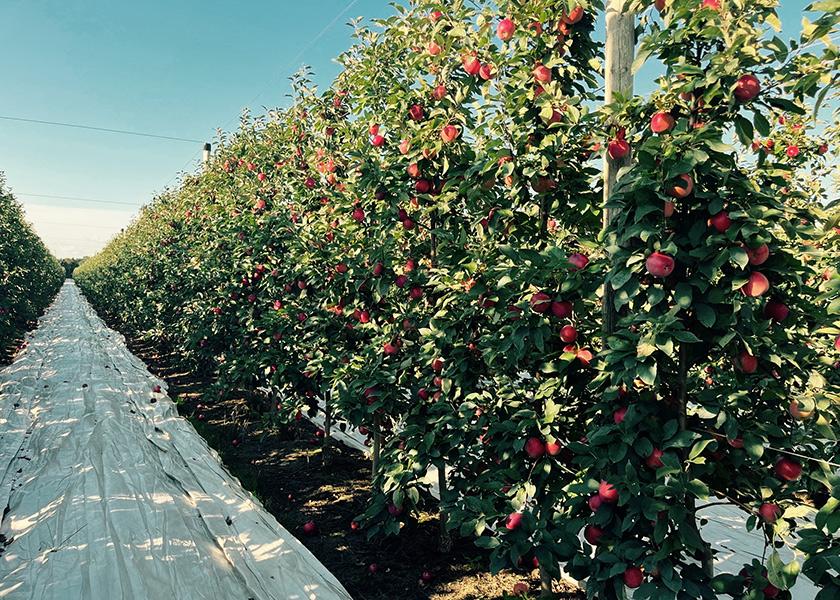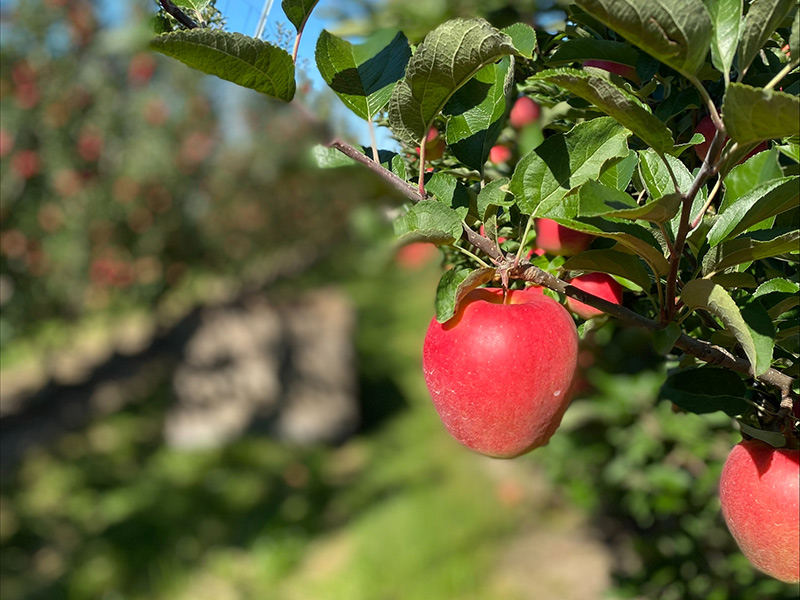Branded apples are gaining traction with retailers, growers

Retailers and apple growers increasingly are turning to branded apples — also known as managed or club varieties — to offer consumers what they consider to be a superior eating experience.
The Pink Lady was the first branded apple, said Bill Dodd, president of the Midwest Apple Improvement Association, Oberlin, Ohio. Also known as Cripps Pink, the variety was released in Australia in 1973.
Today there are several dozen branded apples available in the U.S. that may account for about 15% to 20% of apple sales.
“The goal of a managed variety is to find that sweet spot where everybody is making out,” Dodd said. “The money is trickling down to the grower.”
Growers must pay licensing fees to produce managed varieties, so production is confined to a limited number of packinghouses.
“The quality can be controlled a little bit better, and marketing can be controlled,” Dodd said. “Your expectation is that it’s going to be a superior apple to some of the other varieties.”
Sparta, Mich.-based Applewood Fresh Growers LLC is the leading marketer-shipper-grower-packer for branded varieties offered in Michigan, said Shelby Babcock, marketing and sales specialist.
“We have Rave, SweeTango, Kiku, Kanzi and EverCrisp alongside New York-grown varieties SnapDragon and RubyFrost in collaboration with [Lockport, N.Y.-based] Crunch Time Growers,” she said.
Branded varieties offer new and unique choices for customers, said Jim Swindeman, grower and owner of Applewood Orchards Inc., Deerfield, Mich.
“They also provide a premium eating experience over the core varieties,” he said.
When selecting branded apples to market, Applewood looks for varieties that will increase sales, have better returns for growers and “give retailers premium options to best compete in the produce section.”
Applewood Orchards is beginning to pull out older orchards to focus on high-density planting with newer trees and increasing its volume per acre, Swindeman said.
“There are a lot of upfront costs associated with apple growing, so this is not a decision that can be made overnight,” he said.

About 5% of the apples from Traverse City, Mich.-based North Bay Produce are club varieties, said Ken Korson, apple and asparagus category manager.
Some club varieties, like Pink Lady, are relatively simple to get into, but others, like Cosmic Crisp, which is exclusive to Washington growers, are more difficult, he said.
Ambrosia was once a branded variety, but he said that’s no longer the case. Korson believes ambrosia will become a more popular variety now that more trees can be planted.
It’s hard to predict which branded apples will be successful, he said.
“The really good ones make it,” he said. “There are so many that the ones that are marginal never make it.”
Inflation and the higher cost of branded apples may be a concern, Korson said.
“It may hurt them a little bit with people watching their dollars,” he said.
Sparta-based Riveridge Produce Marketing Inc. had a couple of past managed varieties, like Pink Lady and ambrosia, but no longer offers those varieties, said Trish Taylor, marketing manager.
“We’ve concentrated on developing our core varieties and establishing our orchards to produce quality and volume of consumer favorites,” she said. “Also, we are focused on trialing organic at the commercial scale, which is new for Michigan.”
The company cycles out older strains or lighter-color varieties, Taylor said.
“We plant strains with better color and qualities and focus on newer varieties and strains that can provide a better return per acre with the flavors and appearance retailers and consumers demand,” she said.
There are risks in any new endeavor, Dodd said.
“It’s probably easier to pick out what you’re going to take out than what you’re going to put in its place,” he said.
But branded apples aren’t going away.
“The holy grail for us is to increase apple consumption,” Dodd said. “To do that, we have to create better eating experiences.”
Some of the new varieties will fail, and others will succeed, he said.
“Ultimately, the consumer is going to be better off because they’re going to have better eating experiences,”
he said.







